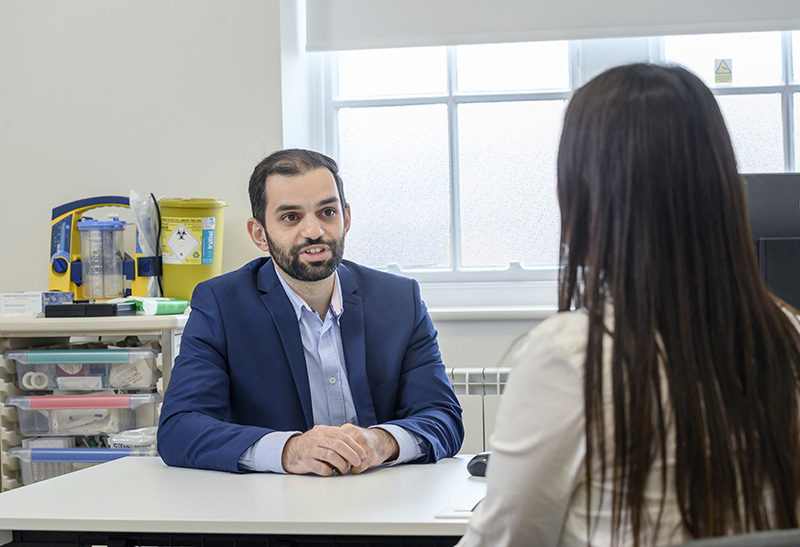Contents
Tendinopathy

Tendinopathy is a general term used to describe pain and dysfunction in a tendon, often due to overuse or repetitive strain. It can affect any tendon in the body but is most commonly seen in the shoulder, elbow, knee, hip, and Achilles tendon.
At The New Foscote Hospital, we offer consultant-led care for all forms of tendinopathy, combining diagnostic imaging, physiotherapy, and minimally invasive treatments to relieve pain and restore function.
What is Tendinopathy?
Tendinopathy involves structural changes in a tendon, often due to chronic overload, microtrauma, or degeneration. Unlike tendinitis, which refers specifically to inflammation, tendinopathy encompasses a broader set of conditions including:
- Tendinosis – degeneration of tendon fibres without inflammation
- Partial tendon tears – small tears resulting from overuse
- Insertional tendinopathy – affecting the point where the tendon attaches to bone
This condition is common in both athletes and individuals who perform repetitive movements at work or during daily activities.
Where Tendinopathy Commonly Occurs
Tendinopathy can affect any tendon in the body, but it is most frequently seen in areas subject to repetitive strain or overuse, including:
- Achilles tendon – located at the back of the ankle
- Patellar tendon – just below the kneecap
- Rotator cuff tendons – supporting movement and stability in the shoulder
- Gluteal tendons – in the hip, often related to prolonged sitting or walking
- Lateral epicondyle (tennis elbow) – affecting the outer part of the elbow
- Medial epicondyle (golfer’s elbow) – involving the inner elbow
These tendons are particularly vulnerable due to their role in supporting frequent or load-bearing movements.
Causes and Risk Factors
Tendinopathy is commonly caused by repetitive stress or a sudden increase in physical activity. Other contributing factors include:
- Poor biomechanics or posture
- Inadequate warm-up or overtraining
- Age-related degeneration
- Muscle imbalances or joint stiffness
- Inappropriate footwear or training surfaces
Occupational or recreational activities involving repetitive movement or vibration can also increase risk.
Diagnosis at The New Foscote Hospital
Our orthopaedic and sports medicine specialists conduct a thorough assessment, which may include:
- Clinical examination and movement testing
- Diagnostic ultrasound to assess tendon structure
- MRI scanning for deeper or complex cases
We provide same-site imaging and rapid reporting to ensure timely diagnosis.
Treatment Options
Treatment depends on the severity and duration of symptoms. Most patients benefit from a combination of conservative therapies.
Non-surgical management includes:
- Physiotherapy – tailored exercise programmes focused on tendon loading and strengthening
- Shockwave therapy – a non-invasive treatment that stimulates healing
- Ultrasound-guided injections – including corticosteroids or platelet-rich plasma (PRP) where appropriate
- Activity modification – including biomechanical correction or offloading
- Manual therapy and soft tissue mobilisation
Surgical intervention may be considered for cases that do not respond to conservative treatment and may involve tendon repair or debridement.
Specialist Care in Banbury
Patients at The New Foscote Hospital benefit from a multidisciplinary team of orthopaedic consultants, musculoskeletal radiologists, and physiotherapists. Our goal is to reduce pain, restore function, and prevent recurrence through evidence-based care and individualised treatment plans.

Book an Appointment
If you’re experiencing symptoms of a ligament injury, don’t delay diagnosis and treatment. Contact The New Foscote Hospital in Banbury to arrange a consultation with our orthopaedic specialists.
18 June 2025











